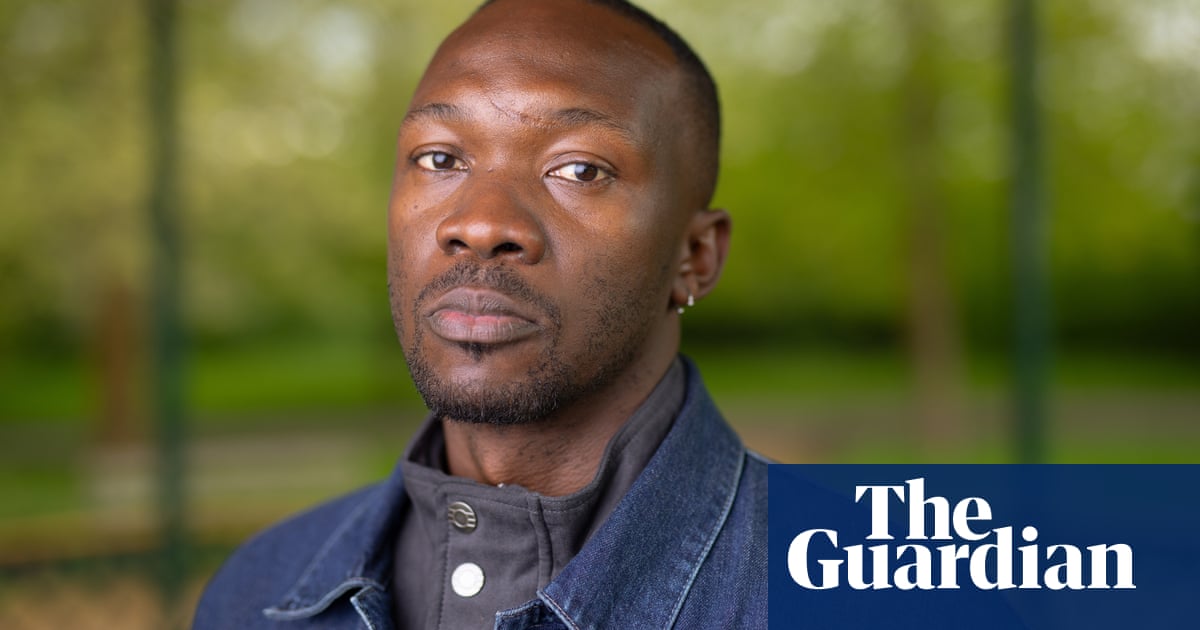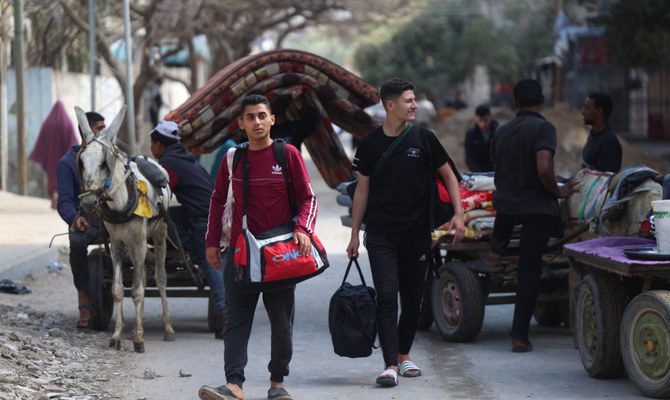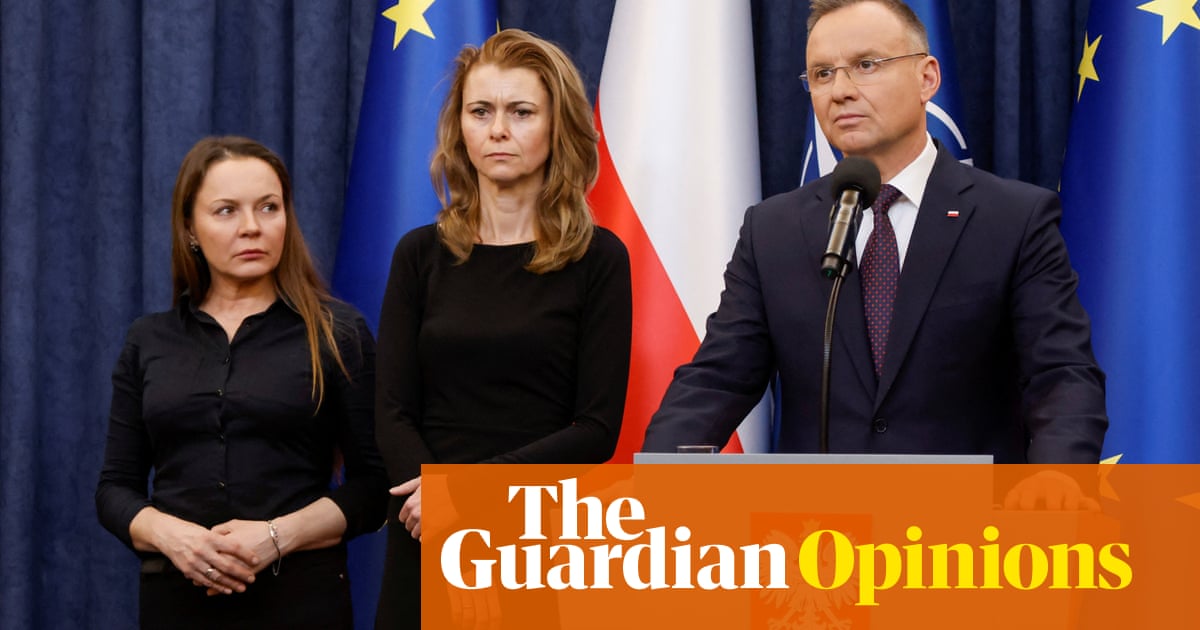
If you want to understand the currents of change shaping our world, look to the periphery. Countries and people pushed to the margins teach us a lot about the health of democracy. They paint a picture steeped in paradox. As storytellers from one of these strange borderlands of western culture, we have made it our life’s work to truffle-hunt for narratives of hope and perseverance in dark places. Our homeland, Poland, is filled with such stories.
Take Elżbieta Podleśna, a veteran civil rights activist, who was drawn to Płock, a town in central Poland where the clergy wields unchecked political power. She led a group protesting against a church exhibition that encouraged believers to battle against so-called LGBT sins. Overnight they plastered posters of the Virgin Mary with a rainbow-coloured halo around the church – and promptly drew the fury of the police, the Catholic church hierarchy and lawyers brandishing the blasphemy laws.
At her trial, Podleśna mounted a blistering defence speech worthy of a Hollywood movie. The duel between the church and Podleśna and her fellow conspirators, Anna Prus and Joanna Gzyra-Iskandar, crystallised the tensions raging in Poland between a modernising society and a conservative power structure. These showdowns matter: they should be sounding an alarm for Europe and beyond. It is in provincial courtrooms that Enlightenment values are being fought over; it’s there, in academia and above all in the streets that the future of a tolerant west will be decided.
For a young person discovering and defining their sexuality in Poland, the outlook is grim. Recent studies show less than a third of Polish LGBTQ youths can count on acceptance from their parents when they come out. Many are beaten, mocked and abused – at home, at school or in church. They cannot find recourse in the law, as violence and discrimination based on homophobia and transphobia are not officially considered to be hate crimes in our country.
The actions and words of the Polish leadership speak for themselves. Last year, President Andrzej Duda described LGBTQ rights as a foreign ideology that was worse than communism. Poland’s government, led by the Law and Justice party (PiS), is inflaming hate by supporting rightwing organisations that spread homophobia and misogyny through campaigns that brutalise society. They are superficially effective. Having recently succeeded in pushing through a near total ban on abortion, Poland has become a source of inspiration for illiberals across the continent – a stamping ground for extremists.
It is no surprise therefore, that human rights watchdogs consistently rank Poland as being among the most homophobic countries in Europe. But this is not the complete picture. There are glimmers of hope in our ultra-conservative dystopia. Take a stroll around Warsaw today and you will see thousands of windows wrapped in rainbow flags, symbolising equality and freedom. Even the capital’s main landmark, the Palace of Culture, a gargantuan Soviet eyesore, regularly lights up in rainbow colours – a reminder that Warsaw still has an independent-minded mayor.
The more the rightwing government tightens its grip, the stronger becomes the voice of protest. A new generation of activists is emerging, building solidarity between the LGBTQ community and the women’s rights movement. State-run propaganda is being matched by counter-campaigns to raise awareness. And while dozens of small Polish towns have declared themselves “LGBT-free zones”, islands of tolerance are also appearing across the country, where progressive mayors and city councils create sanctuaries for oppressed minorities.
Despite very limited resources, the grassroots movement has already started to reap the fruits of its labour by effectively changing the attitudes of millions of Poles. We now have a young generation that is more progressive than ever, and increasingly immune to the aggressive messaging of the religious right. History shows that it is always the oppressed minorities who act as a catalyst for global change. There are parallels here with the 1969 Stonewall rebellion in New York, which prompted a powerful movement for LGBTQ political and legal equality.
Much like the Stonewall protesters more than half a century ago, equality campaigners in Poland are changing the fabric of our society. A brave female judge eventually cleared Elżbieta Podleśna and her allies of all charges. Other activists are creating hostels and sanctuaries for young people made homeless by their homophobic families, providing legal advice to persecuted activists, distributing science-based sexual education to Poland’s youth, and giving psychological counselling to victims of violence.
As a result of the landmark Stonewall protests, homosexuality was eventually removed from the American Psychiatric Association’s list of mental disorders. The riot also sparked the first national march on Washington for lesbian and gay rights. Now is the time for Poland to secure rights for all its citizens. Its determined activists have waited long enough. In many of them you will recognise reflections of the great heroes of social rights movements around the world. These brave young Poles follow in their footsteps, refusing to give up. Read their stories, look up their names. They deserve your support.
Agnieszka Holland is a film director. She is an Academy Award nominee, president of the European Film Academy and a board member of the Equaversity Foundation. Olga Tokarczuk is a writer and laureate of the 2018 Nobel prize in literature. She is 2018 Man Booker International prize winner and a board member of the Equaversity Foundation












